By Steve Austin Nwabueze & Ayodeji Abdul
Introduction
Football or soccer? Whatever you call it, there’s one thing that doesn’t change, and that’s the fans. “You need a solid football ticketing system in place to ensure that everybody who wants a ticket can get one”. There would be no such thing as professional football, or any professional sport for that matter, without the fans. And making sure they can get their hands on tickets easily and at a reasonable price is an essential part of building a fan base.
In Europe, football is undeniably the number 1 sport where European football clubs attract millions of fans to the match venue every week thereby increasing the revenue stream of those clubs generated from the sale of tickets and merchandise.
The reverse is, however, the case in Nigeria. The Nigeria Professional League (NPFL) players, week-in week-out, trade tackles in front of near-empty stadia; thereby making it difficult, if not impossible for football clubs to generate substantial revenue from the sale of tickets. This article attempts to provide a working solution to the problem associated with a lack of revenue generated from ticket sales in the NPFL.
“Having been displaced as Europe’s second-richest league by La Liga in 2016/17, the German Bundesliga’s total revenue increased to almost €3.2 billion; back ahead of its Spanish rivals in 2017/18. La Liga (7%) and the Bundesliga (13%) outpaced Premier League revenue growth (6%), as both slightly narrowed the gap to the top revenue-generating league in the World. In the 2017/18 season, it was reported that the return of Stuttgart and Hannover 96 to the German Bundesliga affected the attendance of fans in the stadiums on matchdays, and subsequently increased club revenues by 7% from €500m to €538m. According to a 2020 Deloitte Report, 16% of $959,300,000, the total revenue generated for the season by Spanish soccer giant FC Barcelona was from matchday ticket sales making it the sport’s biggest cash-generating club for the first time”.
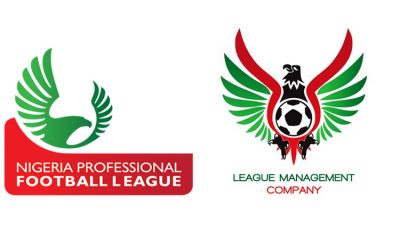
The challenge of secondary ticketing
Secondary ticketing refers to the practice of reselling tickets for an event, such as a rock concert or a football match.
The law regarding the secondary sale of football tickets is clear: it is illegal unless the club has given express authorization, such as Manchester City’s partnership with Viagogo. However, it is still perfectly legal to resell tickets for other events such as gigs and concerts, as long as the sale abides by consumer protection laws.
Also Read: Sports Minister Dare Berates LMC Over Poor NPFL Calendar, Sponsorship
In the UK and most countries in Europe, the secondary market was dominated by street-based touts operating outside venues, buying tickets cheaply from people who had spares and selling them on to last-minute buyers. While street touts still exist, most commercially astute clubs have through technological innovation revolutionized the ticketing system and made it more attractive and consumer-friendly.
These days the secondary market is dominated by four major players in the UK – StubHub, Viagogo, Seatwave and GetMeIn – which provide online platforms for people to sell on tickets, often at inflated prices, for artists such as Adele and Metallica. Manchester City is just one of the Football Clubs that has entered into strategic partnerships with the major players in the secondary market. Usually, the issue regarding authentic purchases of tickets never comes up until a match is canceled and the fan asks for a refund.
“While many of the people using these sites are genuine fans who cannot attend an event and want to recoup their money, in recent years the practice has become increasingly dominated by a relatively small group of “arm-chair touts”.
The Club’s liability to ticket holders
It is pertinent to consider the liability of a football club to fans who have purchased tickets on match days. At common law, it is generally accepted that a ticket is simply a limited license to enter a premises, and accordingly, a venue operator or event organizer may impose terms and conditions on that ticket and its ticket holder. However, this principle has been supplanted — or at least supplemented — in many countries by statutes governing the sale and resale of event tickets. Manchester United in the penultimate week traveled to Austria to play the first leg of the round of 16 games in the UEFA Europa League against LASK and following the announcement by UEFA that the game would be played behind closed doors, refunded the ticket costs to its over 2000 traveling fans. While a lot of people commended this gesture by the club, this might as well be due to the terms of the contract contained in the tickets or in compliance with the consumer protection legislation in the UK. It is noteworthy, however, that it is the only club that took this step.
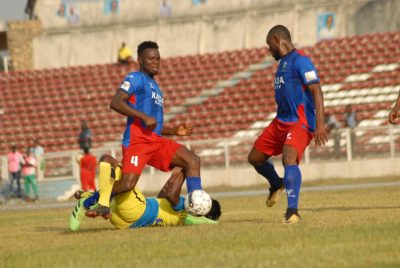
A typical NPFL match without the paying customers – the fans
The common law principle of privity of contract would prevent a ticket holder who re-purchased a ticket from a prior holder (secondary holder), from claiming a refund. Accordingly, only fans and spectators who purchased from the club or authorized agents would be able to get a refund. However, such fans and spectators of a canceled event may be able to recover directly from the other unauthorized resale outlets depending on what the refund policy says.
“Provided that a football club’s ticket terms and conditions contain an express provision banning an original purchaser of a ticket from selling on that ticket to a third party (unless such sale is made to a duly authorized agent or intermediary of the football club) any sale of a ticket in contravention of that football club’s conditions can be the basis for an action for breach of contract against the original purchaser”.
In the event that the original purchaser succeeds in selling on a ticket to a third party or if he or she chooses to advertise a ticket on a third party ‘s ticket exchange website, it may also be possible to bring an action against that third party for breach of contract if they seek to sell on that ticket either on behalf of the original purchaser or itself. One of the relatively recent decisions on a ticketing dispute is the case of The Rugby Football Union v Viagogo, where the English Court of Appeal granted a Norwich Pharmacal Order against Viagogo requiring it to provide the RFU with the names and addresses of all individuals who had sold tickets on its website during the autumn international matches, played at Twickenham stadium in 2010 and the following Six Nations matches played at the same venue in 2011 to enable the RFU to take action against those individuals. This was one of the test cases filed to combat the challenges posed by secondary ticketing which shows that even where there is an existing agency relationship, the margins for infraction remains highly probable.
“In sum, and from a legal point of view, a ticket is a contract between the producer or broadcaster of the show and the audience member. Any change related to the show, therefore, means that the producer/broadcaster does not fulfill his end of the contract, and must refund the viewer if they so wish. The fact that the show is postponed or moved forward (day or time) or that the venue has changed does not alter this reasoning. Ultimately, the holder of a ticket may recover for a total failure of consideration”.
“Typically, football clubs generate revenues from three broad sources, namely broadcasting, commercial activities, and ticket sales. Ticket sales are the most controllable revenue stream for football clubs and charging the right price for a ticket can drive revenues and profits up without any upfront investment”.
Hence, to ensure continued growth, football clubs and football leagues need to take advantage of revenue potentials embedded in football ticket sales. The importance and commercial value of fans’ presence at football venues cannot be over-emphasized. Steve Parish, a part-owner and the Chairman of Crystal Palace FC, has equally stressed that in an age of broadcast billions, fans who file through the turnstiles remain the “lifeblood of the game”.
According to him, “they create all the intrigue, the interest, and all the commercial value is generated first and foremost by those who love football and come to the stadium.”
From the foregoing, therefore, it can be accurately gleaned that the commercial value of ticket sales is a major driver in boosting the total revenue generated by football clubs of successful leagues in the world. Driving this home, the million-dollar question that has remained on every sports analyst’s lips is how football clubs playing in the NPFL can optimize revenue from ticket sales. An attempt to answer this question will be futile without first answering the underlying question of how do we make the game of football attractive enough for the fans to watch live football matches in the stadiums?
The Nigerian fan conundrum
In the past decade, the Nigeria Professional Football League has suffered a chequered history. Driving through the streets of some of the major cities in Nigeria, one would see teeming fans donning the jerseys of their choice European clubs at drinking joints or haphazardly constructed shanties misnomerly called football viewing centres. The very passionate fans would usually be seated with their attention firmly riveted on the television screen. Others could be seen pacing excitedly and bantering away with opposing fans. The celebration of a goal or a major highlight of the game is often heralded by animated screams that would give the erroneous impression that the national football team was playing. On the other hand, a peep at the football stadium hosting one of the domestic games shows the exact opposite. The various stadia are usually filled with empty seats in the stands with some of the clubs forced to open their gates for the few willing fans to come and watch the game free of charge. If Nigeria has this strong football following, why do the stadia continuously remain short of football fans? Several factors have been blamed for this malaise, from poor security, dilapidated stands and quality of the games in the domestic league. The win at home syndrome of the league for many years which has culminated in questionable officiating has been touted to be one of the major factors affecting the growth of the league.
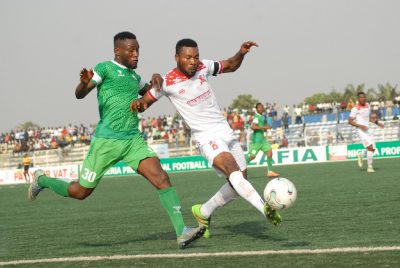
Unsurprisingly, the agony of watching a live match at a poorly constructed stadium, with bad seats and unusable convenience, kills the passion many have for the game; the bad condition of the stadiums has taken life away from the game. Coupled with this is the fact that insecurity at football stadiums is on the rise. The fear of being attacked by hooligans hired by home teams keeps many people away from the stadium vicinities during league games. One major factor responsible for the poor management of stadiums and the league itself is the ownership of NPFL clubs. In the past, all the major clubs were owned by business minds whose desire to make profits from the game of football necessitated huge capital investments and better management strategies in running football clubs. Sadly, today they have all been taken over by state governments and are run as political tools. This problem has brought about mismanagement of club funds and poor business development strategies. Flowing from the foregoing, many of the teams are ignorant of the commercial benefits of ticketing in football as a primary revenue stream. The gates of the stadia are opened with reckless abandon. Where there is a ticketing system in place, it is poorly administered and often marred by the activities of ticket touts and hooligans. These practices stunt the growth of the domestic league and drive away foreign investment.
The Regulatory Issues
The League Management Company (LMC) has over time, huffed and puffed in enforcing its own rules. Issues of insecurity and fan unrest such as the incident between Kano Pillars and Katsina United in Katsina shows a body with no intention of enforcing its own rules. A record broadcast deal was allegedly signed in November 2019. Yet, not a single game has been shown on television. This has affected commercialization and investment and ultimately, created fan apathy.
Also Read – Odegbami: One Death Too Many!
All these and many more have taken away the excitement and the enthusiasm of football fans in Nigeria to follow the game and visit the stadia to watch their teams play. How then can clubs optimize profit from the presence of fans at the stadium when they are not encouraged to come to the stadiums to watch the game live?
Recommendations & Conclusion
Government ownership of football clubs remains an albatross to the development of football in Nigeria. Clubs have now become appendages of state Governors and their lackeys who would stop at nothing to use them for their gains. Interestingly, the LMC Framework Rules provide that the divestment of government ownership should be completed before the end of the 2015/2016 season. Four years down the line, football club ownership remains the white elephant projects of politicians scattered all over the government houses in Nigeria.
Profitability remains a major driver of commercialization. Private investment is the catalyst for a functional league system. A league system where the owners can agree on effective rules and enforce the same. A league system populated by private owners would drive commercialization and revive the interest of the fans by instilling an appropriate and efficient ticketing culture that would put the fans first. This, in turn, would increase ticket sales on matchdays and ultimately entrench a viable fan culture that would be characterized by merchandising and fan engagements. Until then, the development of our professional football league would remain a mirage.
References
1. Deloitte (2019). World in motion. Annual Review of Football Finance 2019
2. See https://www2.deloitte.com/bg/en/pages/finance/articles/football-money-league-2020.html. Last Accessed on February 20, 2020 at 2.05 p.m.
3. https://www.theguardian.com/money/2018/may/25/secondary-ticketing-how-it-works-law-pitfalls-and-future-concert-football.
4. The back of the tickets sometimes indicate that the tickets may be refunded if the performance lasted only a certain time, usually 1 hour.
5. Nick De Marco, QC – Football and the law- “ticketing in football” page 346 -347.
6. https://help.weezevent.com/article/491-legal-obligations-in-the-event-of-cancellation-or-change-of-an-event.
7. Rugby Football Union v Viagogo (2011) EWCA Civ 1585
8. Bühler, A. & Nufer, G. (2010). Relationship Marketing in Sports. London: Elsevier/Butterworth-Heinemann. ESB Business School, Reutlingen University, Alteburgstrasse 150, D-72762 Reutlingen, Germany.
9. Gerd Nufer & Jan Fischer, Ticket Pricing in European Football – Analysis and Implications.
10. https://www.bbc.com/sport/football/45085844 Last Accessed on February 20, 2020 at 2.34 p.m.
11. https://www.goal.com/en/news/1717/editorial/2011/06/29/2552575/empty-stands-the-demise-of-the-nigerian-premier-league. Last Accessed on February 20, 2020 at 2.39 p.m.
Steve and Ayodeji are members of the Dispute Resolution and Sports Teams of Perchstone and Graeys LP, Lagos.
How to Make Anyone Fall in Love with You Within Minutes “Uncover The Hidden Chemistry And Find Your True Love”…. Copyright © 2020 Completesports.com All rights reserved. The information contained in Completesports.com may not be published, broadcast, rewritten, or redistributed without the prior written authority of Completesports.com.
You may be interested

I Want To Take My Game To New Level –Lookman
Webby - November 13, 2024Super Eagles winger Ademola Lookman has reiterated his commitment to take his game to the next level.The Nigerian international, who…

AFCON 2025Q: Benin Republic Hit By Another Injury Blow
Webby - November 13, 2024Benin Republic will be without two more players for their 2025 Africa Cup of Nations qualifying matches against Nigeria and…
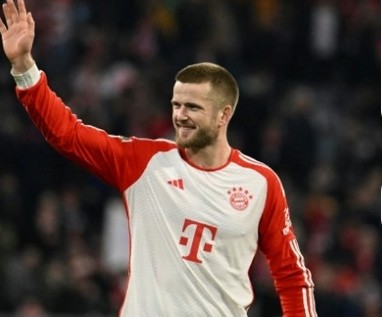
Dier Set To Depart Bayern In Summer
Webby - November 13, 2024Eric Dier is likely to leave Bayern Munich at the end of the season according to transfer expert and Sky…

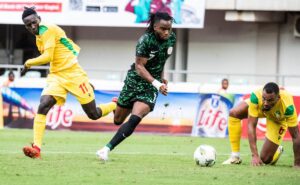
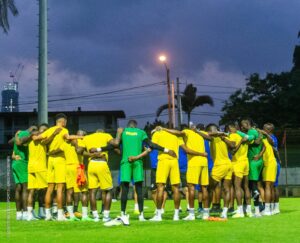


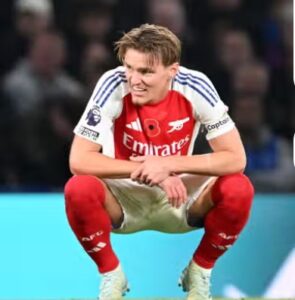

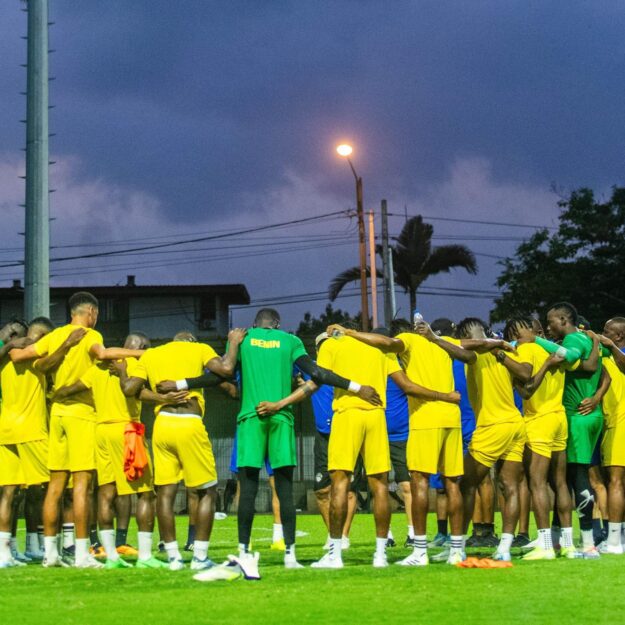
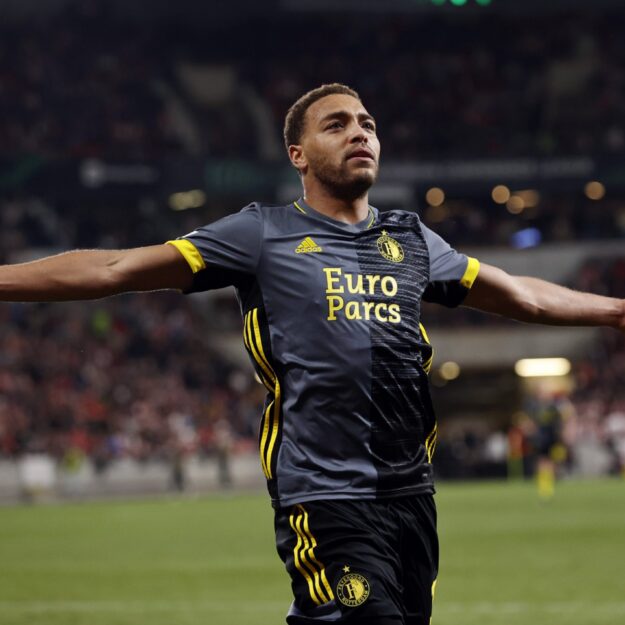
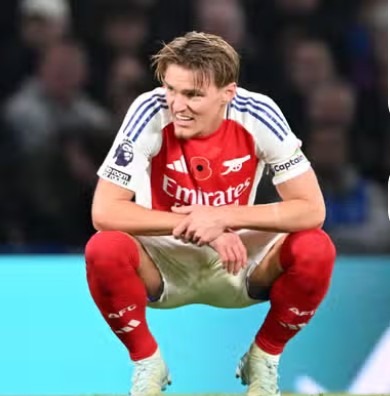
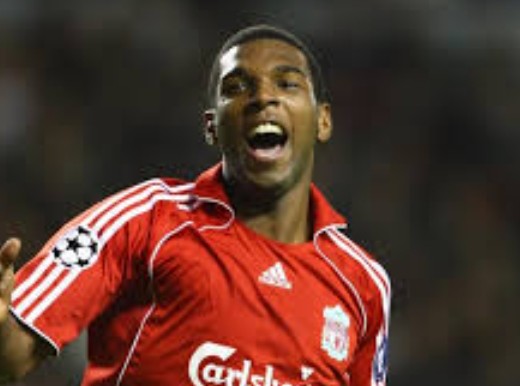
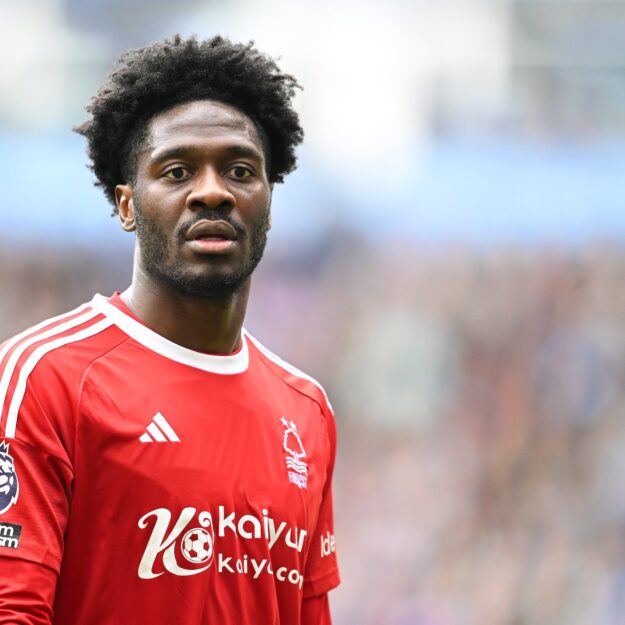
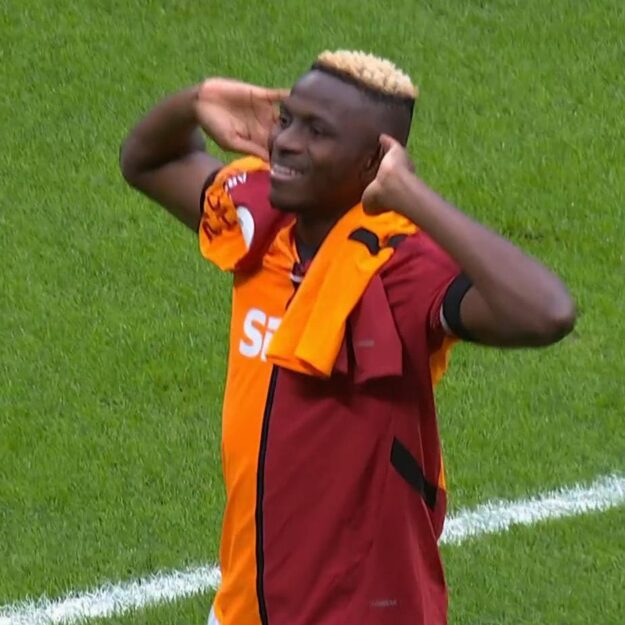
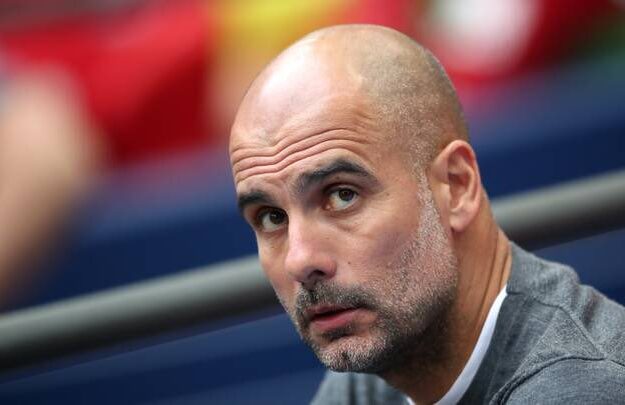
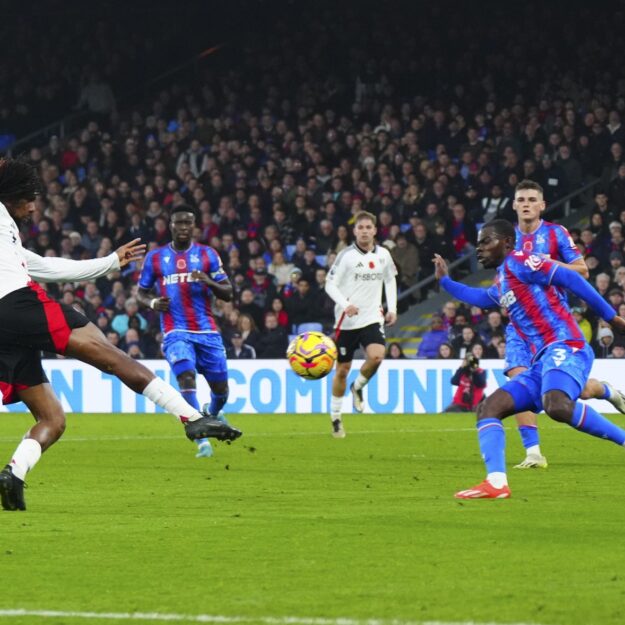

![American Pastor, David Wilson Seen Eating The Box Of Woman Who Isn’t His Wife [Video]](https://onlinenigeria.com/wp-content/uploads/2019/10/american-pastor-david-wilson-seen-eating-the-box-of-woman-who-isnt-his-wife-video-150x150.jpg)









